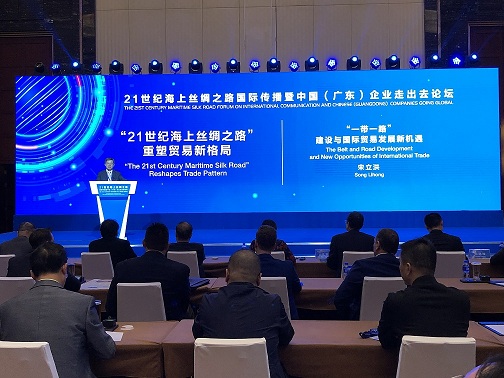
GUANGZHOU, Nov. 29 (Xinhua) -- Cross-border e-commerce is reshaping the international trade pattern by building an “Online Silk Road,” according to experts attending the “the 21st Century Maritime Silk Road” Forum on International Communication and Chinese (Guangdong) Companies Going Global held on November 29.
“The B&R Initiative will promote information technology to spread more rapidly in related countries and greatly increase the penetration rate of Internet, smart phones and e-payment, which will further boost the transformation of traditional trade pattern,” noted Song Lihong, Counsel of the General Affairs Department, Ministry of Commerce.
Statistics showed that foreign trade volume between China and the Belt and Road (B&R) countries has amounted to 6.3 trillion yuan in 2016 and is expected to exceed 7 trillion yuan in 2017.
Experts believed that promoting cross-border e-commerce in a vigorous manner is an important way to facilitate unimpeded trade and financial integration. Meanwhile, cross-border e-commerce is not only a trading platform, but also serves as a bridge connecting different countries, people and cultures.
According to experts, south China’s Guangdong Province, one of the starting points of the maritime Silk Road, has been laying great emphasis on cross-border e-commerce and making it play an active role in implementing the B&R Initiative.
AliExpress, global sales platform of Alibaba Group, has over 100 million overseas buyers covering more than 220 countries and regions. Consumers from the countries and regions along the B&R route have accounted for 45.4 percent of the total.
Zhang Chao, vice president of XBN, another cross-border e-commerce player in China, noted that cross-border e-commerce is bound to gain steam with the deep implementation of the B&R Initiative. It will further push forward the development of logistics, credit and cross-border payment industries during the process. (Contributed by Zhang Yuan, zhangyuan11@xinhua.org)




 A single purchase
A single purchase









